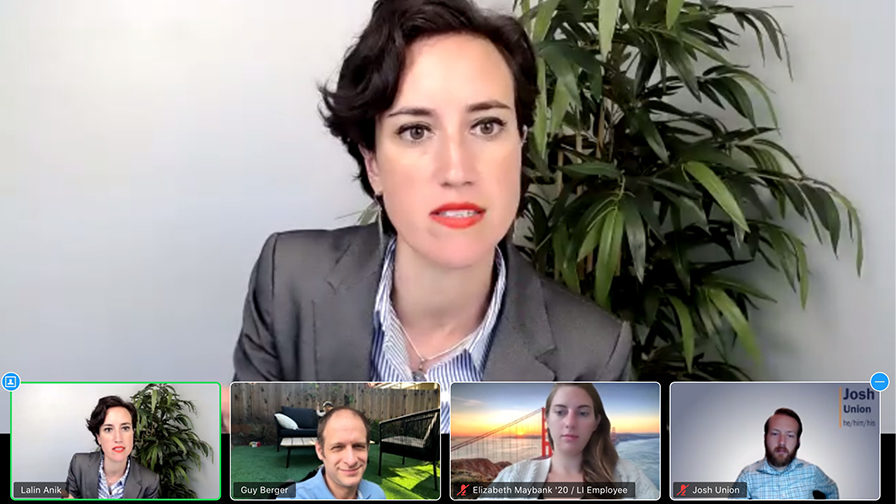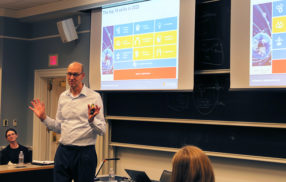
LinkedIn Chief Economist Considers Job Skills of the Future at UVA Darden Management Conference
By Dave Hendrick
Although the coronavirus pandemic has shaken certain fundamental assumptions many had about working and the economy, it has also reinforced the need for job seekers of the future to excel in key areas.
Speaking to students at the University of Virginia Darden School of Business during a virtual fireside chat with Professor Lalin Anik, LinkedIn Principal Economist Guy Berger said the marketplace was looking for candidates with aptitudes in:
- So-called soft skills, notably the ability to communicate. “It’s really important to be able to communicate effectively and work in teams,” said Berger. “It’s hard to succeed in the business world without them.”
- Digital literacy, notably demonstrating comfort and aptitude in the skills necessary for working remotely effectively.
- Technical skills, especially in the fields of analytics and data science. The way data is being analyzed now in a variety of industries is more rigorous than ever before, Berger said.
The discussion was the final event at the MGMT: Managers in Action Conference, a virtual event cosponsored by Darden’s Marketing Club, General Management and Operations Club, and Technology Club — each a student-led club at the School. Other events included an opening keynote with Matson Navigation CIO Peter Weis, discussions on the differences among similar sounding roles across industries, and designing a successful career, among others.
Berger, speaking from California as fires continued to ravage the state, said one key job area of the future will involve helping organizations that have not yet figured out how to deal with climate change.
“One thing smart people can bring is creating more resilience and adaptability to the places they work and the place they lead,” said Berger.
The economist said that, while as recently as five years ago it was popular to view software as the key to solving the world’s problems, it has become clear that technology itself is not a solution.
“Where is it that tech can actually make a difference or a value add?” Berger suggested students ask themselves. “Tech is not a magic talisman that instantly makes things better.”
Further, when considering where to work, Berger suggested students consider the company’s mission, and consider whether the company is likely to be able to achieve those stated goals.
“Find something that you feel good about, can support your lifestyle, and is a place where when you think back, you say, ‘I feel really good about what I did in that last job,’” said Berger. “In the end, you want to look back and be pretty happy with what you did and where you ended up.”
The economist said he was optimistic for the career prospects of Darden students in the short- and long-term, noting that the economy had already recovered more than expected given the severity of the downturn.
The University of Virginia Darden School of Business prepares responsible global leaders through unparalleled transformational learning experiences. Darden’s graduate degree programs (MBA, MSBA and Ph.D.) and Executive Education & Lifelong Learning programs offered by the Darden School Foundation set the stage for a lifetime of career advancement and impact. Darden’s top-ranked faculty, renowned for teaching excellence, inspires and shapes modern business leadership worldwide through research, thought leadership and business publishing. Darden has Grounds in Charlottesville, Virginia, and the Washington, D.C., area and a global community that includes 18,000 alumni in 90 countries. Darden was established in 1955 at the University of Virginia, a top public university founded by Thomas Jefferson in 1819 in Charlottesville, Virginia.
Press Contact
Molly Mitchell
Associate Director of Content Marketing and Social Media
Darden School of Business
University of Virginia
MitchellM@darden.virginia.edu






